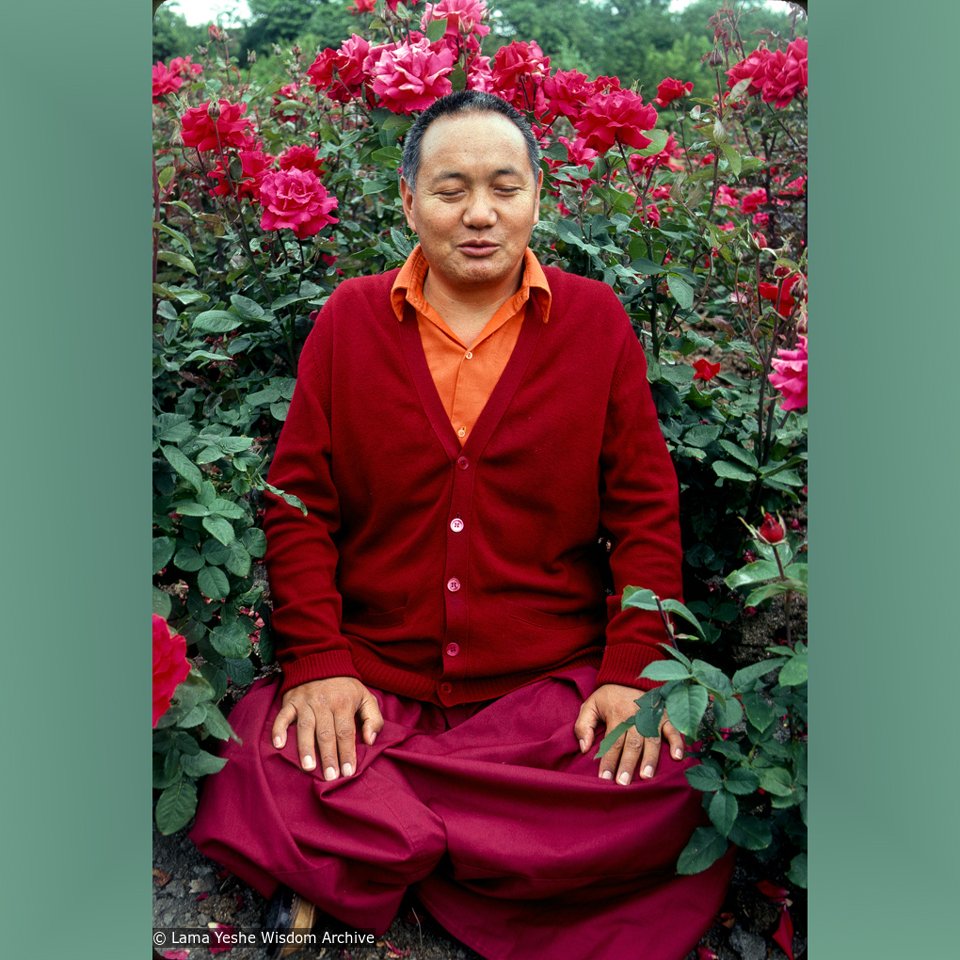Buddhism teaches that you can become a buddha; you can unify, become oneness, with the enlightened mind. You have to understand why this is important, the importance of Lord Buddha’s teaching on this.
Most people have a limited view of themselves and undervalue their worth: “I can’t do this, I can’t do that, I’m nothing.” That’s a lazy mind.* Lord Buddha says that the idea “I’m not good enough” is wrong. What you need to understand is that buddha nature, the clean, crystal-clear nature of mind, exists within you and all of us, right now. It’s simply a matter of clarifying the mind to see that which is currently obscured. When you extinguish the dark shadow of ignorance, you are buddha. That’s all that “buddha” means.
Buddha is a Sanskrit word. It has the connotation of openness. When you understand the true nature of your mind you become completely open. That open nature is buddha.
But when we say you should open yourself, don’t get all emotional and impulsive: “I’m much too closed! I want to open immediately!” You can’t do that. To open yourself is to embrace the totality of yourself with wisdom. Knowing the totality of your own nature is what opens you. The narrow mind is the opposite of that, so that’s what you have to overcome. To facilitate that, Lord Buddha put great emphasis on teaching the perfection of wisdom, the realization of emptiness, or ultimate reality.
Now let’s talk briefly about the second noble truth, the cause of suffering—delusions such as craving desire, hatred, the doubting, indecisive mind, and so forth. Where do such minds come from? What is their root? It is ignorance, the ego, the wrong conception of how the self exists.
What your ego does is make up some kind of identity for what you are, who you are. Perhaps you look in the mirror and think, “Oh, I see, now I am this.” You create a self-identity: “I am this, this, this, and this, therefore I am that.” Your ego builds up a preconceived idea of who you are, “I’m a beautiful person,” so if somebody says you are ugly, you freak out. It’s this ego mind that fabricates your concrete, indestructible self-identity, “This is who I am,” and all the other delusions arise from that.
Of course, what I’m discussing here is just words, philosophy. Don’t think, “That’s not possible. I’ve never thought I’m concrete.” The ego mind’s concepts are very subtle. You have to search for them carefully, with mindfulness. But basically, “I am this” is where human problems begin. “I am this, therefore I need this; I am this because I don’t like that.”
* Buddhist psychology describes three kinds of laziness: the laziness of procrastination, the laziness of attachment to worldly activities and the laziness of delusions of incapability. Lama is referring to the last of these.
“The True Nature of the Mind” is from a teaching given by Lama Yeshe in Tokyo, Japan, on March 23, 1978. Edited by Nicholas Ribush for the Lama Yeshe Wisdom Archive (LamaYeshe.com).
Through timely advice, news stories, and updates, FPMT.org and Mandala Publications share the wisdom culture inspired and guided by the teachings of FPMT founders, Lama Thubten Yeshe and Lama Thubten Zopa Rinpoche.









